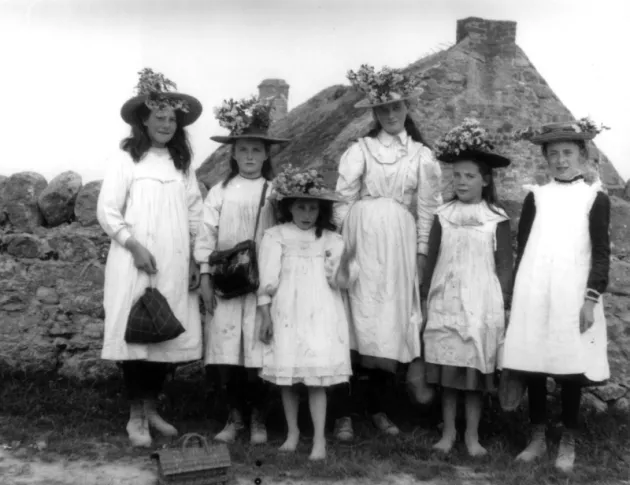May Day
Published on 29th April 2022

May Day in Ireland is celebrated on the Monday on or nearest to 1 May and is also known as Labour Day. Traditionally in the Celtic religions, May Day is the spring festival and commemorates fertility and the blossoming of flowers and fruit. In the Irish language, this spring festival is known as Lá Bealtaine.
May Day, also called Workers’ Day or International Workers’ Day, commemorates the historic struggles and gains made by workers and the labour movement. May Day is celebrated on Sunday, May 1, 2022.
In 1889 an international federation of socialist groups and trade unions designated May 1 as a day in support of workers, in commemoration of the Haymarket Riot in Chicago (1886). Five years later, U.S. Pres. Grover Cleveland, uneasy with the socialist origins of Workers’ Day, signed legislation to make Labor Day—already held in some states on the first Monday of September—the official U.S. holiday in honour of workers.
In Europe May 1 was historically associated with rural pagan festivals, but the original meaning of the day was gradually replaced by the modern association with the labour movement.
In the Soviet Union, leaders embraced the new holiday, believing it would encourage workers in Europe and the United States to unite against capitalism. The day became a significant holiday in the Soviet Union and in the Eastern-bloc countries, with high-profile parades, including one in Moscow’s Red Square presided over by top government and Communist Party functionaries, celebrating the worker and showcasing Soviet military might. In Germany Labour Day became an official holiday in 1933 after the rise of the Nazi Party. Ironically, Germany abolished free unions the day after establishing the holiday, virtually destroying the German labour movement. With the breakup of the Soviet Union and the fall of communist governments in eastern Europe in the late 20th century, large-scale May Day celebrations in that region declined in importance.
In Ireland the beginning of May is associated with the Celtic festival Lá Bealtaine. This marked the start of the season of blossoming flowers and fruit trees. Traditionally, belfires are lit on the evening before May Day. Belfires are large bonfires burning wood from a range of types of trees. The different types of wood had different spiritual meanings and were thought to play an important role in the fertility of the land and cattle in the coming year.
The first Monday of May became a public holiday following the Public Holiday Regulations 1993 Act. The holiday was first observed in 1994.
The maypole is a traditional symbol of May Day and fertility in the Republic of Ireland. A maypole is generally three or more meters (ten or more feet) tall and is decorated with colorful ribbons. Children and young people traditionally dance around the maypole on May Day, although this custom is fading. Each person holds one or more ribbons during the dancing. After the dances are completed, the ribbons are arranged to make a decorative pattern on the pole. The May Day dances traditionally signified the beginning of the courting season for young people. Read more here.
Discover Encyclopedias
See: World Book Online, Oxford Reference, Oxford Research, Oxford Art Online, Encyclopaedia Britannica
Image: May Queens, Irish Folklife Division, National Museum of Ireland.
